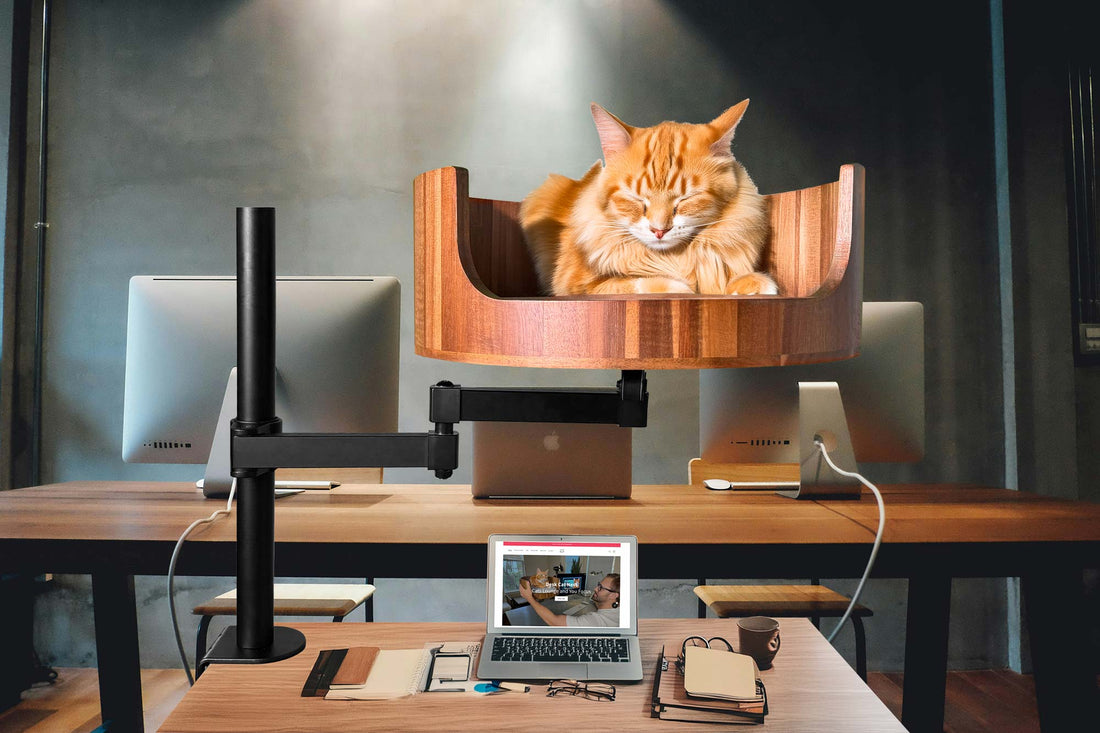
How Can I Tell How Old My Cat Is? A Quick Guide
Share
Are you curious about your cat's age but unsure how to determine it? Look no further! In this quick guide, we will provide you with the essential tips and tricks to help you figure out how old your feline friend might be. Whether you've adopted a stray cat or simply want to know more about your pet's history, understanding their age can give you valuable insights into their health and behavior.
From examining your cat's teeth and eyes to observing their overall behavior and physical appearance, we will outline the key indicators that can help you estimate their age accurately. We will also discuss common age-related changes in cats, such as slowing down, development of health issues, and changes in activity levels. By the end of this article, you will have a better understanding of your cat's age and how to provide the best care for them at every stage of their life. So, let's dive in and uncover the mysteries of your cat's age together!
1. Age determination in cats can be tricky due to their independent nature and varying lifestyles.
2. Physical signs such as teeth condition and muscle tone can provide clues to estimate a cat's age.
3. Behavioral traits like playfulness and activity level can also indicate a cat's approximate age range.
4. Regular vet check-ups and consultations can help confirm a cat's age based on medical records and observations.
5. Understanding your cat's age can help tailor their care and anticipate any age-related health issues that may arise.
Teeth and Oral Health
When trying to determine the age of your cat, one of the key indicators to look at is their teeth and oral health. Kittens will have baby teeth that eventually fall out and are replaced by permanent adult teeth. By the time a cat is 6 months old, all of their adult teeth should have come in. As cats age, their teeth may start to show signs of wear and tear, with older cats potentially having missing or discolored teeth. Regular dental check-ups with a veterinarian can help assess the age of your cat based on their oral health.
Physical Appearance and Muscle Tone
Another way to estimate your cat's age is by looking at their physical appearance and muscle tone. Kittens are typically more agile and have a leaner body compared to older cats, who may start to develop a more rounded appearance due to decreased muscle tone. Older cats may also develop loose skin or have visible signs of aging such as graying fur. Observing your cat's overall body condition and muscle tone can provide clues to help you determine their age.
Behavioral Changes and Activity Levels
As cats age, they may exhibit changes in their behavior and activity levels. Kittens are typically very playful and active, while senior cats may prefer more naps and quiet time. Pay attention to any changes in your cat's behavior, such as increased vocalization, decreased interest in playing, or changes in their grooming habits. These subtle shifts in behavior can offer insights into your cat's age and help you gauge where they fall on the age spectrum.
Medical History and Veterinary Records
If you're unsure of your cat's age, one of the most reliable ways to determine it is by reviewing their medical history and veterinary records. Your veterinarian should have a record of your cat's age based on when they first came in for a check-up or vaccination. These records can provide an accurate estimate of your cat's age and help you track their health over time. Be sure to keep up-to-date on your cat's medical appointments to maintain a detailed history of their age and overall well-being.
Frequently Asked Questions
How can I tell how old my cat is?
One way to estimate the age of your cat is by examining their teeth. Kittens have sharp, white teeth, while adult cats may have yellowing or worn down teeth. Another indicator of age is the condition of their eyes and ears - kittens typically have bright, clear eyes and clean ears. Lastly, looking at the overall behavior and energy level of your cat can also give you clues about their age.
Can a veterinarian accurately determine my cat's age?
Yes, a veterinarian can provide a more accurate estimate of your cat's age through a physical examination and possibly additional diagnostic tests. They will look at a combination of factors such as tooth condition, eye clarity, muscle tone, and overall health to determine the age of your cat.
Are there any other methods to determine my cat's age?
While tooth condition is a common method, you can also consult your cat's adoption or rescue records if available. These records may provide information about the cat's birthdate or estimated age when they were taken in. Additionally, some behavior traits such as agility and playfulness can also give clues about a cat's age.
In conclusion, a Desk Cat Bed is a valuable choice when trying to determine the age of your cat. By providing a comfortable and safe space for your feline friend to relax and sleep, the Desk Cat Bed can help you observe their behavior and physical condition more closely. This can give you clues about their age based on factors such as mobility and appetite. Additionally, the Desk Cat Bed offers a cozy and inviting spot for your cat to rest, ensuring they stay happy and healthy as they age. With its numerous benefits, the Desk Cat Bed is a great tool for helping you determine how old your cat is.



















































